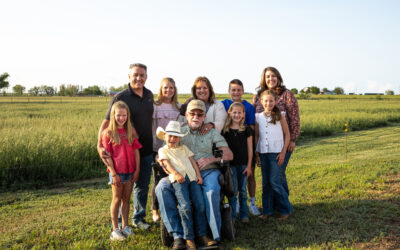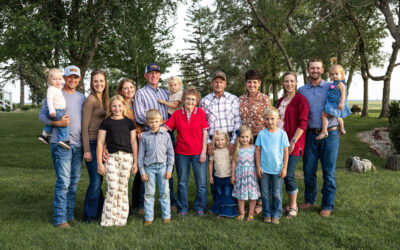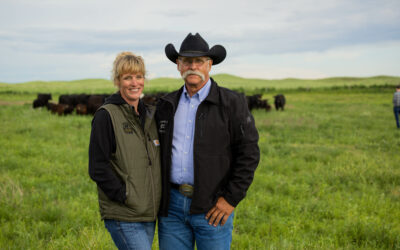
Sustaining Common Ground
The first time I visited New York City it thrilled me. So many people from all walks of life coming together at one place and time. The smells were most particular – ranging from the taxi cab exhaust fumes to the Atlantic Ocean, wafting in when the wind blew just right.
I didn’t realize the difference in air quality until I was home in West Texas. It had rained the previous evening. The silty clay soil was dampened, releasing its rousing aroma. A perfume one only recognizes from growing up on a farm.
It hit me how special it was I had grown up here. As much as I loved NYC, it was nothing compared to the stillness of a farm after a rain. This place, I knew, needs to be protected for future generations.
The term sustainability is ever-present in today’s dialogue, in conversation and politics with little context of what that means for agriculture.
Steve and Ginger Olson hope to clarify that dialogue.
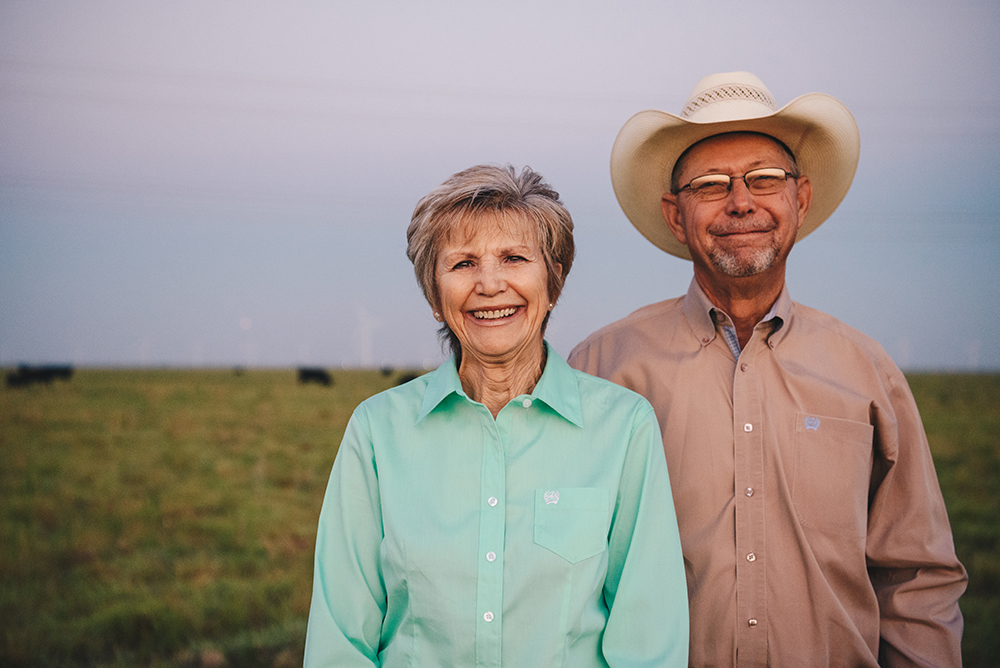
Two hours north of where I grew up, their home was part of the storied XIT Ranch, and bought by Steve’s great grandfather in the 1930s. They now have seven grandsons who want to make the ranching lifestyle their livelihood. Sustainability is in their blood.
A member of the U.S. Roundtable for Sustainable Beef, Steve knows that while consumers’ intentions are good, they don’t always have the best information. When tours come, he explains points of sustainability on his ranch.
“The first one is taking care of the animals,” he says. “Their health, their nutrition, the handling, their wellbeing – all of that fits under the care of the cattle.”
That focus went into the design of their working barn, recently branded with the Certified Angus Beef ® (CAB®) logo. After hearing Temple Grandin speak, the Olsons researched cattle handling to make sure they got it right. Since the barn’s completion, they’ve seen a significant drop in stress, both on the cattle and themselves.
The second key is caring for the land. Steve and Ginger see the natural resources of their ranch as God-given. They act as stewards, ensuring pastures are not over-grazed and working to conserve water wherever they can.
“Caring for the land is so important if we want it to sustain itself and be here for our next generation,” Ginger says. “I feel like we need to put back into the land that God’s given us. To take care of it just means so much to us, to see that it’s cared for and can be passed on.”
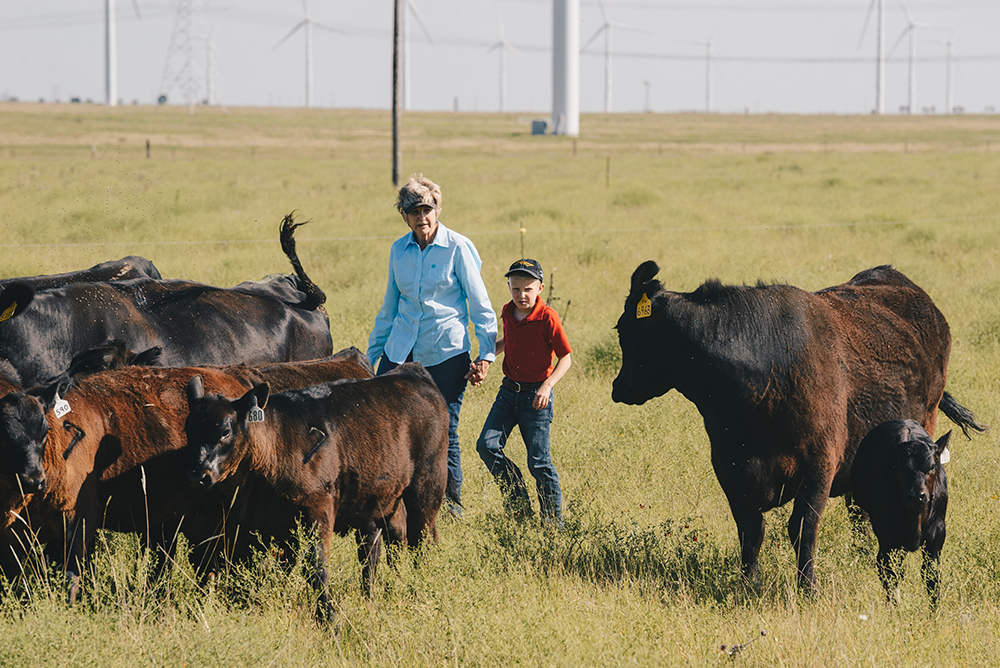
They’ve created this atmosphere for their grandsons to take ownership and pride in what they do – to make sure they continue the hard work of sustainability for the generations after them.
They extend this principle to everyone they meet, which makes people another point of sustainability.
“People are family and how we treat [each] other, especially the people that work for us – their time here needs to be one that’s good for them and also their financial well-being.”
Finally, Steve says he wouldn’t be able to work on sustainable aspects if he didn’t have the profitability to keep it going. He attributes the CAB brand with helping him maintain his bottom line.
“I think the cattle industry is sustainable in every aspect, but I also believe that we, as cattle producers, have a responsibility to share with others,” he says. “It’s other people being inquisitive about where their food comes from—and certainly there’s a need for that—and if we don’t fulfill that need, they will find answers from other people who maybe don’t know the whole truth about cattle production.”
So whether it’s a fellow rancher or a stock broker on Wall Street, the Olsons find common ground. City and country folk alike come to realize we’re all working toward the same goal: stewarding what we’ve been given so future generations can be just as lucky as I am to smell the soil after a rain.
Talk to you soon,
Abbie
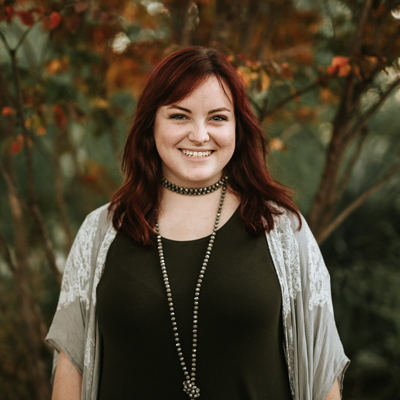
About the author: Abbie Burnett
I grew up among the cotton fields of Texas, loving God, my family and a camera in my hand. As a 2018 graduate from Texas Tech, I jumped at the chance to be a CAB storyteller because I know it’s the farmers and ranchers who have the greatest stories to tell. I look forward to meeting you and telling your story while snapping a few (OK, maybe a lot) of sunset pictures along the way!
you may also like
Magnum Feedyard Earns Certified Angus Beef Award
While Magnum hasn’t always had pens filled with Angus-influenced cattle, they’ve invested in infrastructure, improved quality-based marketing and sought better genetics. Their dedication to detail and employee appreciation drive their success to high-quality beef production.
North Dakota Partnership Earns CAB Progressive Partner Award
The Bruner and Wendel families earned the 2023 CAB Progressive Partner award by selling high-quality beef through Dakota Angus, LLC, as part of the CAB Ranch To Table program. They focus on their commitment to quality, data-driven decisions, achieve impressive CAB and Prime percentages and offer high-quality beef directly to consumers in their communities.
Kansas Ranchers Recognized for Sustainability Efforts
Kansas’ Wharton 3C Ranch thrives despite droughts, winning the CAB 2023 Sustainability award. The data-driven, quality-focused approach of first-generation ranchers, Shannon and Rusty Wharton, yields 100% CAB cattle. Their commitment to sustainability and industry collaboration sets a bright future for the cattle business.

